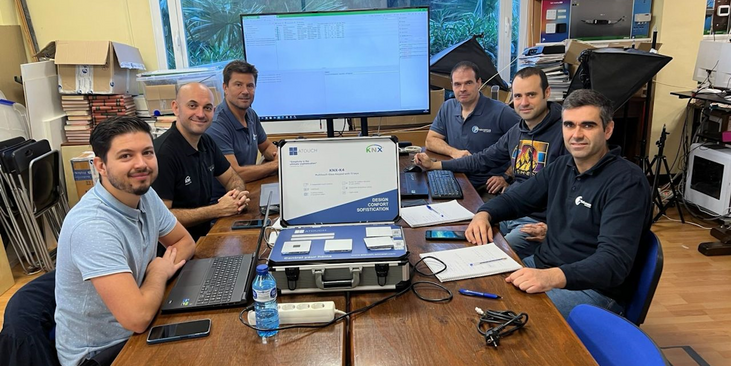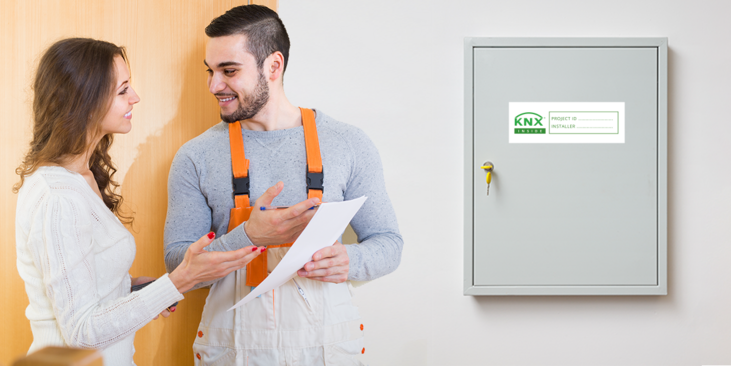22. May 2021
Preparing for 2025: replacing gas and oil boilers with low-carbon systems

Simon Buddle looks at the demands of new green legislation on future heating systems, and how plumbers are now faced with having to replace tried-and-tested technology with more challenging alternatives.
There are plenty of grumpy old people in the world. Each day brings about a new reason; like when did youngsters become quite so annoying, with all their bling and slang? Plumbers are, however, by far, the grumpiest set of people I know, particularly those who you ask about what they will do come 2025. The response to this question elicits the same universal and very grumpy response, 'Retire!'
The reason for this? The requirements of new green legislation. For example, as part of wider initiatives to make the UK carbon neutral by 2050, the UK Government has stated that new gas boiler installations will be phased out by 2025. Existing gas or oil boiler installations will not have to be replaced, but should they be beyond repair, a low-carbon heating system or an appliance that can be converted to use a clean fuel will have to be used. There is some forward thinking and planning by the plumbers that I meet, but I don't see many looking at 2025 as an opportunity. Moreover, the marketplace remains confused as to what the solution is.
The heat pump
For many, the heat pump is the natural selection, and we see a significant number being installed alongside the traditional boiler. But there remain simple challenges with the heat pump, namely space, noise and cost, to name but three. The primary issue with them, however, is that they cannot reach the 60oC threshold required to eliminate legionella in the hot water tank. That is where the conventional boiler fits in currently with a heat pump - it can add that last 10oC to the tank. So, the combination of a heat pump backed up by a boiler is a strong and safe choice. That setup, of course, requires a good control system and logic to fully benefit from the heat pump as the primary heat source.
The electric boiler
Unfortunately, in many instances, particularly with retrofit, the heat pump solution may not be viable, as space requirements and cost are prohibitive. The electric boiler is surely the obvious choice. It is cheaper to install, quieter, does not require a gas connection or flue, and has 99% energy efficiency. That all looks hugely positive, but scratch a little deeper and you'll find some of the numbers don't quite add up.
Costs per kilowatt-hour between gas and electricity are vastly different. Gas is, on average, GBP£0.038/kWh, whilst electricity is more like £0.144/kWh. That's a huge difference. Of course, gas is carbon intensive, whereas ultimately, electricity could come from completely renewable sources. Gas boilers that are over 25 years old are typically less than 60% efficient. New boilers are rated at 92-94%, but this can drop by as much as 25% if it isn't setup correctly. The key here is to set the boiler temperature to 65oC or below, but I've seen many a plumber ratchet that up to 75oC or more.
The next issue from our grumpy plumbers' viewpoint is that, to give them the correct boiler size for a property, they were trained to calculate 1.5kW per radiator in your home, plus 3kW for your water cylinder. A modern four-bedroom home will have around ten radiators. This gives a boiler size of 18kW. So, let's just break that figure down a bit. With a supply of 230V, that comes out at 78A. Most properties in the UK only have a single-phase 63A or 100A fuse. The reality is that the incoming power supply to the house would have to be upgraded to three-phase, and additional cables would have to be run to the boiler location. Surely, this isn't viable for most people.
The running costs for an 18kW boiler, if used for two hours every morning and two in the evening using our average cost, comes in at £311 per month! There is talk of microwave and hydrogen boilers. However, both would seem to be some way off the mainstream. I've also recently read that some of the new electric boilers will be capable of using a throttle on their electrical load, based upon the consumption within the house. For many however, the solution is still seen as a mix of renewables, insulation and existing systems.
Conclusion
Currently, the options are limited. Electric boilers do not fulfil the role of the existing gas boiler. It is no wonder that plumbers are unhappy - they have been given an impossible task to stop using a tried-and-tested technology with, seemingly, no sensible solution. As this scenario unfolds over the next few years, one thing that we can be sure of is, that whatever the solution(s), it is almost inevitable that some intelligence and control system will be required to support it. In fact, whilst still expensive, the heat pump and back-up boiler option seems the most obvious, and that absolutely requires an excellent control system such as KNX to ensure that it provides good energy efficiency.
Simon Buddle CEng MIET, is a consultant for Future Ready Homes, a specialist in BMS and ELV services system design.
Highlights
-
 News
NewsNew ETS App: Password Manager
The ETS Password Manager is a powerful new ETS App introduced in ETS 6.3 that eliminates the need to repeatedly enter ... -
 Press
PressKNX Association achieves key milestones in KNX IoT technology development and certification
New IoT certification and open-source access elevate KNX as the standard for secure, interoperable smart home and building ... -
 News
NewsBoost your business with the KNX Toolkit for Professionals
Are you a professional looking to bring your KNX business to the next level? KNX Association has just the thing for you – ...
